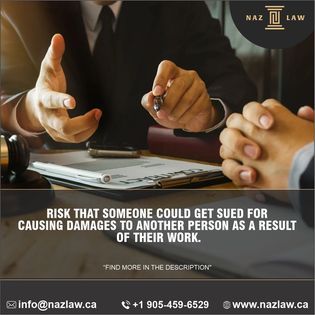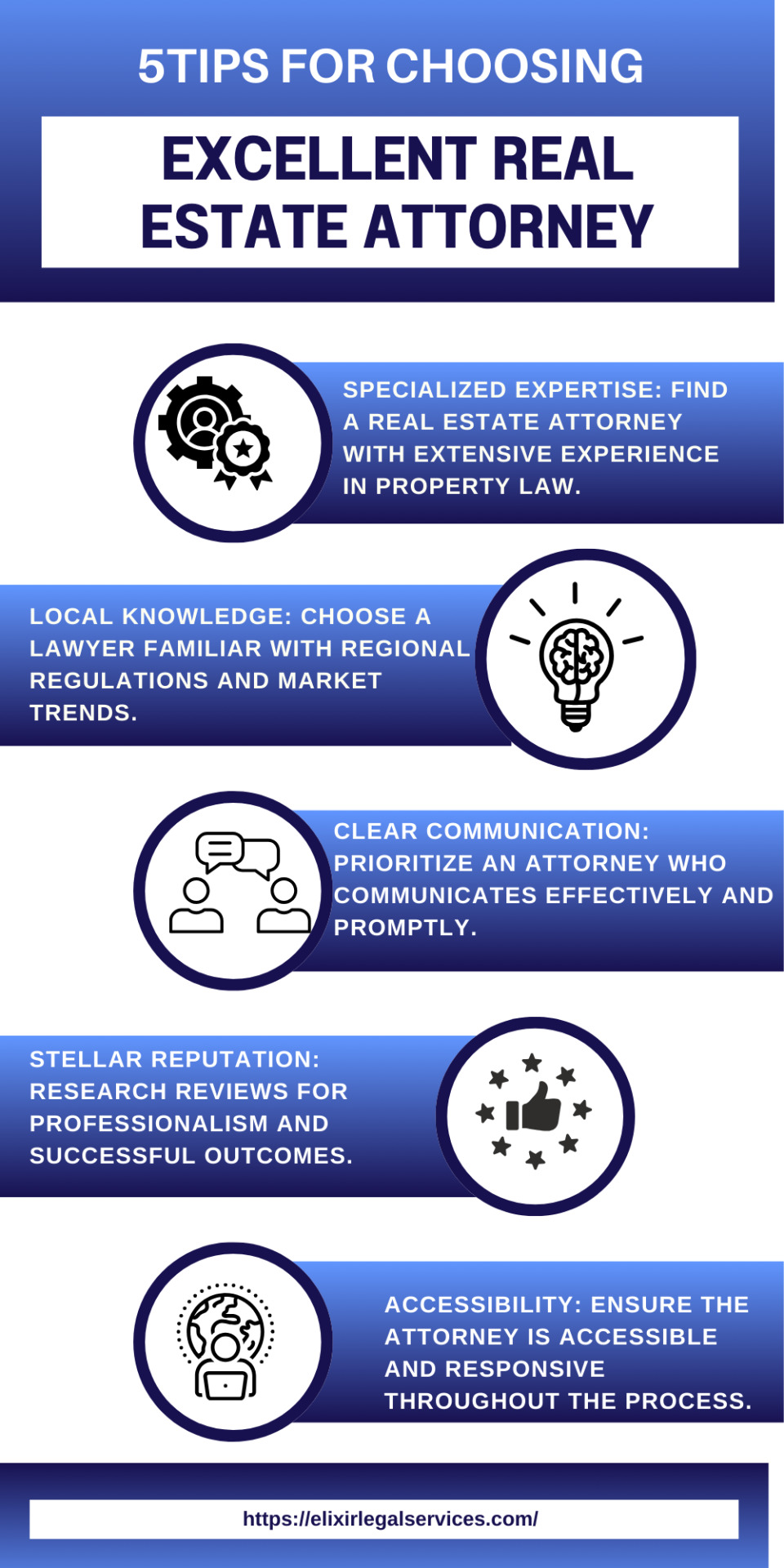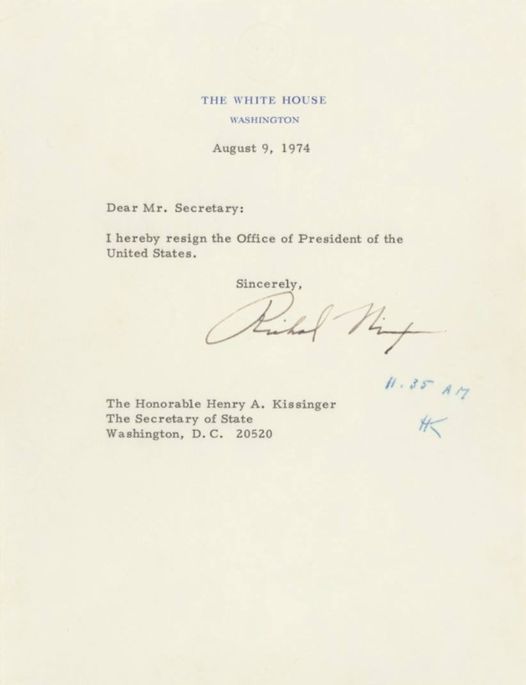#construction litigation lawyer
Text

Best Immigration Lawyer in Toronto Brampton
Naz Law is the best immigration specialist lawyer in the Toronto Brampton Area. He has many years of experience in commercial litigation, immigration, real estate, business, and small claims law in the Ontario region of Canada. Visit our site today for an expert lawyer.
#Best immigration Lawyer Toronto Brampton#Best immigration lawyer Brampton#Construction Lawyer#Litigation lawyer#Civil Law attorney#Civil Lawyer Toronto#Civil Lawyer Brampton#Civil Litigation lawyer
2 notes
·
View notes
Text
When you choose Bezer Law Office as your litigation attorney in Bergen County, you can expect responsive and accessible representation at every stage of your case. We prioritize open communication and keep clients informed and involved throughout the legal process.
Bezer Law Office
30 Park Ave, Lyndhurst, NJ 07071
(201) 677–8693
Official Website: https://www.bezerlaw.com/
Google Plus Listing: https://www.google.com/maps?cid=6381492145994611745
Other Links
litigation attorney bergen county : https://www.bezerlaw.com/business-law-commercial-law
construction attorney bergen county : https://www.bezerlaw.com/construction-attorney-bergen-county
building code attorney bergen county : https://www.bezerlaw.com/building-code-land-use
trademark lawyers bergen county : https://www.bezerlaw.com/trademark-copyright-law
landlord tenant lawyer bergen county : https://www.bezerlaw.com/landlord-tenant-law
real estate attorney bergen county : https://www.bezerlaw.com/real-estate-lawyer-bergen-county
real estate lawyer hudson county : https://www.bezerlaw.com/real-estate-lawyer-hudson-county
real estate attorney middlesex county : https://www.bezerlaw.com/real-estate-lawyer-middlesex-county
Other Service We Provide:
Business Law / Commercial Litigation
Business Advice & Counseling
Building Code / Land Use
Trademark & Copyright Law
Landlord-Tenant Law
Municipal Law
Follow Us On
Twitter: https://twitter.com/LawBezer
Pinterest: https://www.pinterest.com/BezerLawOfficeNJ/
Linkedin: https://www.linkedin.com/in/bezer/
Instagram: https://www.instagram.com/bezerlawoffice/
#construction attorney bergen county#real estate lawyer bergen county#litigation attorney bergen county#trademark lawyers bergen county#building code lawyer bergen county#real estate attorney middlesex county
0 notes
Text

When venturing into real estate transactions, securing the services of a reliable attorney is paramount. Choosing an excellent real estate attorney requires careful consideration of various factors to ensure a smooth and successful process.
#Real Estate & Construction Law Firm in Mumbai#SRA Lawyers in Mumbai#best Real Estate Lawyers in Mumbai#property dispute lawyers in mumbai#commercial property lawyer in mumbai#real estate litigation attorney in mumbai#redevelopment lawyers in mumbai#redevelopment lawyers in maharashtra#commercial property lawyers in maharashtra
0 notes
Text
Hire an Experienced Construction Litigation Attorney Today!

A knowledgeable construction litigation attorney in Lake Charles, Louisiana, can also aid you in crafting a standard agreement that you can use for every job and can research contracts that customers give you before you sign them. Be sure to consult with our experts, who can guide you through the procedure and defend your interests. Get in touch with Scofield, Gerard, Pohorelsky, Gallaugher & Landry, LLC!
#construction attorney#construction litigation attorney#construction issues#construction litigation#construction lawyer
0 notes
Text
Home Insurance Claim Adjuster Secret Tactics
The secrets of home insurance claim adjusters with these expert tactics. Learn the insider tips to maximize your claim, navigate the process smoothly, and ensure you receive the compensation you deserve. Don't let the complexities of insurance claims intimidate you – empower yourself with the knowledge to make the system work for you.

#Breach of Contract#home insurance claim adjuster secret tactics#State Farm Home Insurance Claims#Construction attorney near me#Construction lawyer near me#signs of foundation issues#foundation problems#Construction litigation#Construction attorneys#foundation issues#Construction litigation attorney#construction defect attorney#when to walk away from foundation issues#construction defect#Commercial Insurance Claims#Lawyer to sue contractor near me#construction defect lawyer#Contractor Fraud#Construction Defects#Poor Workmanship#home insurance claim lawyer#Commercial property lawyer#Commercial proprety attorney#Abandonment and Warranty Issues#Fraudulent Builders#Contractor Fraud and disputes
1 note
·
View note
Text
0 notes
Text
West Palm Beach Real Estate Attorneys | 561.699.0399
West Palm Beach Real Estate Attorneys
The Role Of A West Palm Beach Real Estate Attorney
If you’re thinking of buying or selling a property in West Palm Beach or Florida, you might be feeling overwhelmed with all the legal jargon and paperwork involved. That’s where a real estate attorney comes in. They can guide you through the complex process and make sure everything is done legally and to your…

View On WordPress
#Attorneys#buyer representation#Commercial Real Estate#Construction law#Contract law#Do you need a lawyer for a real estate closing in Florida#Does Florida have attorney review for real estate#escrow deposit disputes#Foreclosure Defense#Homeowners associations (HOAs)#How do I become a real estate attorney in Florida#Land use law#law firms#lawyers#Leasing and rental agreements#Property disputes#Property law#Real estate#Real estate litigation#Real estate transactions#Residential real estate#seller representation#Short sales#Title searches#West Palm Beach#West Palm Beach Real Estate Attorneys#West Palm Beach Real Estate Lawyers#Where do real estate attorneys make the most#Zoning regulations
0 notes
Text

If you're engaged in a real estate dispute, you'll need an experienced real estate litigation lawyer in Houston to represent your interests. At Murray Lobb Attorneys, we have years of experience handling all types of real estate disputes, from boundary disputes and title issues to construction defects and homeowner association problems. Our goal is to make sure that every real estate transaction goes smoothly and seamlessly.
#real estate litigation lawyer#construction law#lawyer#Houston#experienced attorneys#Murray Lobb Attorneys#1950s#pastel#pink#plushies#poem#poets on tumblr#poems on tumblr#poesia#real estate
0 notes
Text
Why Trump’s Conviction Can’t Stand
It rests on an intent to violate a state law that is pre-empted by the Federal Election Campaign Act.
By David B. Rivkin Jr. and Elizabeth Price Foley
Wall Street Journal
Donald Trump runs no risk of going to prison in the middle of his campaign, thanks to Judge Juan Merchan’s decision Friday to postpone sentencing until Nov. 26. The delay gives his lawyers more time to prepare an appeal. Fortunately for Mr. Trump, his trial was overwhelmingly flawed, and a well-constructed appeal would ensure its ultimate reversal.
A central problem for the prosecution and Judge Merchan lies in Article VI of the U.S. Constitution, which makes federal law the “supreme law of the land.” That pre-empts state law when it conflicts with federal law, including by asserting jurisdiction over areas in which the federal government has exclusive authority.
Mr. Trump’s conviction violates this principle because it hinges on alleged violations of state election law governing campaign spending and contributions. The Federal Election Campaign Act pre-empts these laws as applied to federal campaigns. If it didn’t, there would be chaos. Partisan state and local prosecutors could interfere in federal elections by entangling candidates in litigation, devouring precious time and resources.
That hasn’t happened except in the Trump case, because the Justice Department has always guarded its exclusive jurisdiction even when states have pushed back, as has happened in recent decades over immigration enforcement.
The normal approach would have been for the Justice Department to inform District Attorney Alvin Bragg, who was contemplating charges against Mr. Trump, of the FECA pre-emption issue. If Mr. Bragg didn’t follow the department’s guidance, it would have intervened at the start of the case to have it dismissed. Instead the department allowed a state prosecutor to interfere with the electoral prospects of the chief political rival of President Biden, the attorney general’s boss.
Mr. Trump was indicted under New York’s law prohibiting falsification of business records, which is a felony only if the accused intended “to commit another crime” via the false record. Judge Merchan instructed the jury that the other crime was Section 17-152 of New York election law, which makes it a misdemeanor to “conspire to promote or prevent the election of any person to a public office by unlawful means.” Prosecutors alleged that Mr. Trump violated this law by conspiring with his lawyer, Michael Cohen, and Trump-related businesses to “promote” his presidential election by coding hush-money payments as “legal expenses” when they should have been disclosed publicly as campaign expenses or contributions—matters that are governed by FECA.
FECA declares that its provisions “supersede and preempt any provision of state law with respect to election to Federal office.” The 1974 congressional conference committee report accompanying enactment of FECA’s pre-emption language states: “It is clear that the Federal law occupies the field with respect to reporting and disclosure of political contributions and expenditures by Federal candidates.” Federal Election Commission regulations likewise declare that FECA “supersedes State law” concerning the “disclosure of receipts and expenditures by Federal candidates” and “limitation on contributions and expenditures regarding Federal candidates.”
The New York State Board of Elections agreed in a 2018 formal opinion that issues relating to disclosure of federal campaign contributions and expenditures are pre-empted because “Congress expressly articulated ‘field preemption’ of federal law over state law in this area” to avoid federal candidates’ “facing a patchwork of state and local filing requirements.”
In using New York’s election law to brand Mr. Trump a felon based on his actions with respect to a federal election, Mr. Bragg subverts FECA’s goal of providing predictable, uniform national rules regarding disclosure of federal campaign contributions and expenses, including penalties for noncompliance. Congress made its goals of uniformity and predictability clear not only in FECA’s sweeping pre-emption language but also in its grant of exclusive enforcement authority to the FEC for civil penalties and the Justice Department for criminal penalties. Both the FEC and Justice Department conducted yearslong investigations to ascertain whether Mr. Trump’s hush-money payments violated FECA, and both declined to seek any penalties.
Prior to Mr. Trump’s New York prosecution, it would have been unthinkable for a local or state prosecutor to prosecute a federal candidate predicated on whether or how his campaign reported—or failed to report—contributions or expenditures. In 2019 the FEC investigated whether Hillary Clinton’s 2016 presidential campaign failed to disclose millions in contributions from an outside political action committee. The agency deadlocked, and no penalties were imposed. In 2022 the FEC levied $113,000 in civil penalties against Mrs. Clinton’s campaign for violating FECA because it improperly coded as “legal services,” rather than campaign expenditures, money paid to Christopher Steele for production of the “dossier” that fueled the Russia-collusion hoax. In neither instance did any state or local prosecutor indict Mrs. Clinton under state election law based on failure to disclose these contributions or expenditures properly. If New York’s Trump precedent stands, Mrs. Clinton could still be vulnerable to prosecution, depending on various states’ statutes of limitation and the Justice Department’s potential involvement.
Mr. Bragg’s prosecution of Mr. Trump is plagued by many reversible legal errors, of which the failure to accord pre-emptive force to FECA is the strongest grounds for its reversal on appeal. The prosecutor’s interference in the 2024 presidential election process has created legal and political problems. The Justice Department’s failure to intervene before the trial is a dereliction of duty.
The department aggressively prosecuted Mr. Cohen based on the same hush-money payments, so it was well aware that New York’s prosecution invaded its exclusive FECA jurisdiction. This is another stark example of the Biden administration’s incompetence—or, worse, the distortion of justice through a partisan lens. It is left to the appellate courts, and ultimately the Supreme Court, to clean up the mess Mr. Bragg and the Justice Department have made.
Mr. Rivkin served at the Justice Department and the White House Counsel’s Office during the Reagan and George H.W. Bush Administrations. Ms. Foley is a professor of constitutional law at Florida International University College of Law. Both practice appellate and constitutional law in Washington.
#trump#trump 2024#president trump#ivanka#repost#america first#americans first#america#democrats#donald trump
60 notes
·
View notes
Text
Last week, as the International Court of Justice (ICJ) issued a provisional ruling in South Africa’s lawsuit against Israel, it sent an authoritative message to the world: Allegations of genocide against Israel are not meritless. Notwithstanding Hamas’s unlawful conduct that started the war last October, the court clearly indicated an overwhelming disapproval of the way that Israel has been fighting the war—stating, notably, that Palestinians face a “real and imminent risk” to their right to be protected from acts of genocide.
Even though the court did not rule on the merits of the genocide allegations, which may take years, it evoked strong reactions from around the globe. While human rights experts and groups welcomed the ruling, Israeli Prime Minister Benjamin Netanyahu decried the court’s decision, protesting the court’s willingness to hear the case at all.
In any case, the ICJ decision offers an opportunity for lasting peace that should not be missed. For that, credit must go to South Africa for bringing the case.
Pretoria’s “moral leadership,” as some have called it, has garnered support from many countries throughout the global south. However, other countries such as Germany, the United Kingdom, and the United States have opposed the lawsuit. Not only has Antony Blinken, the U.S. secretary of state, declared South Africa’s case “meritless,” he’s also argued that the case “distracts the world” from efforts to find a lasting solution to the conflict.
While both sides are entitled to their own views, it is wrong to suggest that a case that seeks to stem the bloodbath is an attempt to distract the world from more durable paths to peace at a time when the Israeli-Palestinian conflict is threatening to provoke a wider regional war. Since lasting solutions cannot be found within the chambers of the political organs of the United Nations, including the Security Council, which has become hopelessly dysfunctional, solutions must be sought elsewhere.
Rather than criticize South Africa for daring to launch the lawsuit that asks whether the Genocide Convention has been violated, a more constructive criticism would be to argue that Pretoria limited its case too narrowly with regard to the parties involved and the scope of its litigation—namely, by not initiating proceedings against Hamas and failing to examine crimes other than genocide, such as war crimes and crimes against humanity, which are often committed under the cover of war.
South Africa’s case mainly rests on the principle that international lawyers call obligation erga omnes. According to that doctrine, the obligation to protect human rights and humanity from acts of violence is an obligation owed to the whole world—even if they are not direct victims of said violations. Therefore, any country is entitled to bring legal action to ensure continued protection of the concerned rights , as Gambia, Canada, the Netherlands, and Ukraine have done in the past.
However, South Africa oddly limited the parties to the proceedings by omitting to initiate proceedings against Hamas, which it could have done by including Palestine as a nominal party in the case. This limitation likely results from the argument that Hamas is not a state actor, and therefore its actions cannot be adjudicated at the ICJ. That argument is flawed.
Considering that Hamas is the organization that performs the functions of government in Gaza, a geographic entity forming part of Palestine—which is recognized as a U.N. observer state—it is mistaken to argue that it is not a state actor which could trigger the international responsibility of Palestine. According to the U.N.’s Draft Articles on Responsibility of States for Internationally Wrongful Acts, the conduct of Hamas, as the acting governmental authority in Gaza, is justiciable at the ICJ (just as the conduct of Arizona, a U.S. state, was justiciable at the ICJ in a 2001 case between Germany and the United States).
Another reason for the limitation likely results from the political debate about Palestine as a state. Given that 139 countries have recognized Palestine as a state and the U.N. General Assembly has voted to recognize Palestine as a nonmember observer state, the obstacle to initiating proceedings against Palestine at the ICJ depends on the practices of the ICJ. Indeed, Palestine is listed among the states that may be parties to proceedings before the ICJ. Notably, in 2018, the same year it was admitted as a state party to the ICJ statute, Palestine challenged the U.S. relocation of its embassy to Israel from Tel Aviv to Jerusalem.
All this is to say that it might have been preferable for South Africa to initiate proceedings against Hamas, too. Israel had compellingly argued before the ICJ that any provisional order by the court to halt the fighting would tie Israel’s hands and not Hamas’s. That argument offers a better explanation for why the ICJ’s ruling did not go as far as to order an immediate cease-fire, though it indicated several provisional measures requiring Israel to prevent acts of genocide.
By omitting to include Hamas as a party to ICJ proceedings, South Africa lost the opportunity to actually try to halt the ongoing armed conflict by compelling both sides to stop fighting—given that the Security Council has proved unable to adopt a resolution calling for an immediate humanitarian cease-fire.
South Africa also unduly limited the scope of its litigation by confining it to the question of genocide. World leaders, including U.S. President Joe Biden, who argued that Israel was entitled to defend itself and go after Hamas, have criticized Israel for indiscriminate bombings that have killed innocent civilians in Gaza, including women and children, in unprecedented numbers in recent history.
In its defense, Israel argued that it also found the scale of civilian casualties and destruction in Gaza truly heartbreaking, and that it was doing its best to minimize harm to civilians. This defense was made in spite of the many disturbing utterances of multiple Israeli officials suggesting otherwise, and the critical observations of some Israeli citizens, including soldiers, suggesting a lack of restraint. Still, Israel refused to slow down—insisting at once that it must continue bombing and attacking Gaza until it had eliminated Hamas.
The Convention against Genocide is not the only document that Pretoria could have turned to; it could have also cited the Geneva Conventions of 1949 and their First Additional Protocol of 1977, a set of treaties which in one form or another bind all nations when fighting wars. The 1949 conventions criminalize the willful killing and willful infliction of great suffering on civilian populations as well as the destruction of civilian property beyond military necessity. The 1977 protocol details the principle of proportionality and forbids indiscriminate attacks.
In any war in which there are conflicting accusations and denials about violations of these norms, the legally proper recourse is to pose those questions to the ICJ—just as countries such as the Netherlands and Canada did in their case against Syria about violation of the Convention against Torture.
It is unreasonable and fundamentally counterproductive to criticize judicial proceedings before international courts, especially when parties are seeking to intervene in life-and-death situations that the global political institutions have otherwise been unable to resolve. Indeed, no nation should object to using judicial proceedings as a last resort in seeking to stop a war.
The irony is inescapable. Since 1928, states have agreed to renounce war as an instrument of state policy and to use peaceful means—including adjudication—to resolve differences instead, an idea subsequently enshrined in the U.N. Charter. Today, there is widespread concern that the ongoing war in Gaza could broaden the conflict across the region or beyond. Given that risk, it is startling that any responsible state would support continuing an armed conflict that has killed so many and destroyed so much, when no effort had been made to use peaceful means of settlement—apart from the brief cease-fire and prisoner exchange last November.
Putting the legal merits of these cases aside, there is much value in countries such as Gambia, Canada, the Netherlands, Ukraine, and South Africa bringing these kinds of proceedings to the ICJ. If nothing else, the recent case has forced the international community to confront the problem of armed conflict, even if the only way left to do that is through the international courts. The cases allow judges to cut through all the political noise to answer legal questions.
Additionally, such litigation can help to quell the cacophony of recriminations—allegations, denials, and counter-allegations of genocide, war crimes, apartheid, crimes against humanity, and wars of aggression—that these events invariably generate. These lawsuits thus invite trained experts—specifically, highly-qualified judges from across the world, assisted by the briefs and arguments of able counsel—to deliberate these questions and then declare to the world whether there is merit in the allegations, so that they are not left at the level of defamatory political insults or disingenuous denials.
International courts now seem to be the last hope for humanity in a world where the possibilities of science have been harnessed by states to maximize destruction, while the U.N.’s ability to curb the scourge of war has largely failed.
15 notes
·
View notes
Text

On this day in 1974 (H/t Mary Elaine LeBey)
* * * * *
LETTERS FROM AN AMERICAN
August 9, 2023
HEATHER COX RICHARDSON
New York Times journalists Maggie Haberman, Charlie Savage, and Luke Broadwater yesterday reported that in a memo dated December 6, 2020, Trump lawyer Kenneth Chesebro laid out a plan to overturn the results of the 2020 presidential election that he acknowledged was “a bold, controversial strategy” that he believed the Supreme Court would “likely” reject.
Still, he presented the plan—while apparently trying to distance himself from it by writing “I’m not necessarily advising this course of action”—because he thought it “would guarantee that public attention would be riveted on the evidence of electoral abuses by the Democrats, and would also buy the Trump campaign more time to win litigation that would deprive Biden of electoral votes and/or add to Trump’s column.”
The plan was essentially what the Trump campaign ultimately tried to pursue. It called for Trump-Pence electors in six swing states Biden had won to meet and vote for Trump, and then to make sure that in each of those states there was a lawsuit underway that “might plausibly” call into question Biden’s victory there. Then, Vice President Mike Pence would take the position that he had the power not simply to open the votes but also to count them, and that the 1887 Electoral Count Act that clarified those procedures was unconstitutional.
Key to selling this strategy, Chesebro wrote, was messaging that constructing two slates of electors was “routine,” and he laid out a strategy of taking events and statements out of context to suggest support for that messaging.
This was, of course, a plan to deprive American voters of their right to have their votes counted, as the federal grand jury’s recent indictment of former president Trump charged, but Chesebro concluded: “it seems advisable for the campaign to seriously consider this course of action and, if adopted, to carefully plan related messaging.”
Three days later, Chesebro wrote specific instructions to create those fraudulent electors, and they were off to the races.
Chesebro is identified as Co-Conspirator 5 in the grand jury’s recent indictment of Trump.
It is an astonishing thing to read this memo today.
Forty-nine years ago, on August 9, 1974, President Richard Nixon wrote one line to Secretary of State Henry Kissinger: “I hereby resign the Office of President of the United States.” In late July the House Judiciary Committee had voted to recommend articles of impeachment against the president for obstruction of justice, abuse of power, and contempt of Congress for his attempt to cover up the involvement of his people in the June 1972 burglary of the Democratic National Committee headquarters at the Watergate Hotel in Washington, D.C.
The Watergate break-in was part of the Nixon campaign’s attempt to rig the 1972 election, in this case by bugging the Democrats’ headquarters, and Republicans wanted no part of it. When the White House produced a “smoking gun” tape on August 5, revealing that Nixon had been in on the cover-up since June 23, 1972—and implying that he had been in on the bugging itself—those Republicans who had been defending Nixon abandoned him.
On the night of August 7, 1974, a group of Republican lawmakers led by Arizona senator Barry Goldwater met with Nixon in the Oval Office and told him that the House as a whole would vote to impeach him and the Senate would vote to convict. Nixon decided to step down.
Although Nixon did not admit any guilt, maintaining he was resigning only because the time it would take to vindicate himself would distract from his presidential duties, his replacement, Gerald R. Ford, granted “a full, free, and absolute pardon” to Nixon “for all offenses against the United States which he…has committed or may have committed or taken part in during the period from January 20, 1969, through August 9, 1974.”
Ford said that the trial of a former president would “cause prolonged and divisive debate over the propriety of exposing to further punishment and degradation a man who has already paid the unprecedented penalty of relinquishing the highest elective office of the United States.”
Only fifteen years later, the expectation that a president would not be prosecuted came into play again when members of President Ronald Reagan’s National Security Council ignored Congress’s 1985 prohibition on aid to the Nicaraguan Contras who were fighting against the socialist Nicaraguan government. The administration illegally sold arms to Iran and funneled the profits to the Contras.
When the story of the Iran-Contra affair broke in November 1986, government officials continued to break the law, shredding documents that Congress had subpoenaed. After fourteen administration officials were indicted and eleven convicted, the next president, George H. W. Bush, who had been Reagan’s vice president, pardoned them on the advice of his attorney general William Barr. (Yes, that William Barr.)
The independent prosecutor in the case, Lawrence Walsh, worried that the pardons weakened American democracy. They “undermine…the principle…that no man is above the law,” he said. Pardoning high-ranking officials “demonstrates that powerful people with powerful allies can commit serious crimes in high office, deliberately abusing the public trust without consequences.”
Walsh’s warning seems to be coming to life. The Republican Party now stands behind a man whose legal troubles currently include indictment on 40 counts for taking and hiding classified national security documents and on four counts of trying to steal an election in order to stay in power.
LETTERS FROM AN AMERICAN
HEATHER COX RICHARDSON
#Nixon Resigns#Mary Elaine LeBey#history#Heather Cox Richardson#Letters From an American#Nixon#Republicans#presidential pardons#republican wrongdoing#justice#rule of law
13 notes
·
View notes
Text

Our Real Estate Lawyers thoroughly know the law and the local market. We can help you successfully navigate the Indian real estate market by providing full-service legal advice on all aspects of Indian real estate law from purchasing or selling real estate to all the further formalities and compliances.
#Real Estate & Construction Law Firm in Mumbai#SRA Lawyers in Mumbai#best Real Estate Lawyers in Mumbai#property dispute lawyers in mumbai#commercial property lawyer in mumbai#real estate litigation attorney in mumbai#redevelopment lawyers in mumbai
0 notes
Text
Avoid Potential Pitfalls with Our Construction Attorney!

Resolve construction disputes with confidence - hire an experienced construction litigation attorney in Lake Charles, Louisiana. Scofield, Gerard, Pohorelsky, Gallaugher & Landry, LLC has dedicated legal team specializes in navigating complex construction cases, advocating for your rights, and achieving favorable outcomes. Reach out to us for a consultation today.
#construction attorney#construction litigation attorney#construction issues#construction litigation#construction lawyer
0 notes
Text
Giftedverse | Day Jobs
Splendor
Joou is a businesswoman, fashion designer, and celebrity jeweler. An heir to her father's company and family's jewelry empire, her pieces have been worn by some of the most famous people in the world.
Phoenix Knight
Lancelot would be a lawyer and litigator, specifically working cases involving children. He works in the family law department at Minamoto Law, LLC.
Stormchaser
Sorami works as a weatherwoman and meteorologist at a local news station. In her early days she used to be an investigative journalist but retired to take on her current position.
Inkstain
Irefumi continues to lead their band Black Moon. Even though his duties as a hero will sometimes conflict with concerts and live performances, he'll never miss one.
Persephone
Sakura is the current CEO of Yamaniwa Botanicals, a company that specializes in environmentally friendly plant-based products such as soaps, air fresheners, etc.
Hades
Kagehiko is a mortician and works at a funeral home not too far from him and Sakura's home. Sometimes he helps out at his sister's bar.
Chargeman
Chuso (Shukara) is still a wrestler, but is also a personal trainer. He mainly stays at home with Tenki since he can do his classes online. At night he goes to his matches.
Demoman
Alan (Akio) works as a construction worker, only now he's full-time. Mans will sleep for like three hours and have the energy to build like 20 houses just from that amount of sleep.
@floof-ghostie @calciumcryptid @s0ursop @opalofoctober @elflynns-horde-of-stuff @pizzolisnacks @peachyblkdemonslayer @autisticichihime
#giftedverse#oc: sakura🌸#oc: sorami🌦#oc: shukara🤼#oc: akio👷#oc: kagehiko💀#oc: lancelot🛡#oc: joou💎#oc: irefumi🎸
5 notes
·
View notes
Text
Business Name:
Pacific Attorney Group - Accident Lawyers
Street Address:
856 S Robertson Blvd
City:
Los Angeles
State:
California
Zip Code:
90035
Country:
USA
Business Phone:
(310) 907-8422
Website:
https://www.pacificattorneygroup.com/
Facebook:
https://www.facebook.com/payam.shayani
Twitter:
https://twitter.com/pmarkshayani?lang=en
LinkedIn:
https://www.linkedin.com/in/p-mark-shayani-7b4226109/
Instagram:
https://www.instagram.com/accident/
YouTube:
https://www.youtube.com/channel/UCZBjKVTAhtPZrSsACZCFFtQ
Business Description:
Accident Lawyers goal is to help accident victims throughout Los Angeles recover compensation for their losses. We have a thorough understanding of insurance law and are dedicated to protecting our clients' rights. Our top-rated car accident attorney near me has a reputation for being an aggressive litigator who will go above and beyond to help their clients obtain the maximum compensation possible. As a team, we also have handled thousands of cases and know how much money is at stake in these matters. We are ready to do whatever it takes to help you secure the future you and your family deserve.
Google My Business URL:
https://www.google.com/maps?cid=5277818318072385503
Business Hours:
Sunday 24 Hours
Monday 24 Hours
Tuesday 24 Hours
Wednesday 24 Hours
Thursday 24 Hours
Friday 24 Hours
Saturday 24 Hours
Services:
Auto Accidents, Atv Accidents, Drunk Driving Accidents, Bus Accidents, Taxi Accidents, Boating Accident, Helicopter Accident, Bicycle Accidents, Birth Injury, Burn Injury, Catastrophic Injury, Construction Accidents, Defective Products, Dog Bites Attacks, Medical Malpractice, Mesothelioma, Motorcycle Accidents, Pedestrian Accidents, Premises Liability, Subway Accidents, Train Accidents, Truck Accidents, Workers Compensation, Wrongful Death
Keywords:
car accident lawyer, injury attorney, workers compensation, accident attorney
Business/Company Establishment Date:
June 1, 2009
Location:
Service Areas:
2 notes
·
View notes
Text
Building Dispute Lawyers | Kapadia Legal

Kapadia Legal makes a speciality of Building Dispute Lawyers, offering professional legal illustration for clients dealing with conflicts in the construction industry. Their experienced team of constructing dispute lawyers is adept at managing issues inclusive of agreement breaches, delays, and price disputes. Committed to defensive customers’ pursuits, they hire strategic negotiation and, if essential, litigation to obtain favorable outcomes. Kapadia Legal emphasizes clean communique and personalized service, making sure customers sense supported in the course of the process. With a thorough information of creation law, they navigate complex legal landscapes to clear up disputes correctly, helping clients get lower back on the right track with their projects and investments.
0 notes